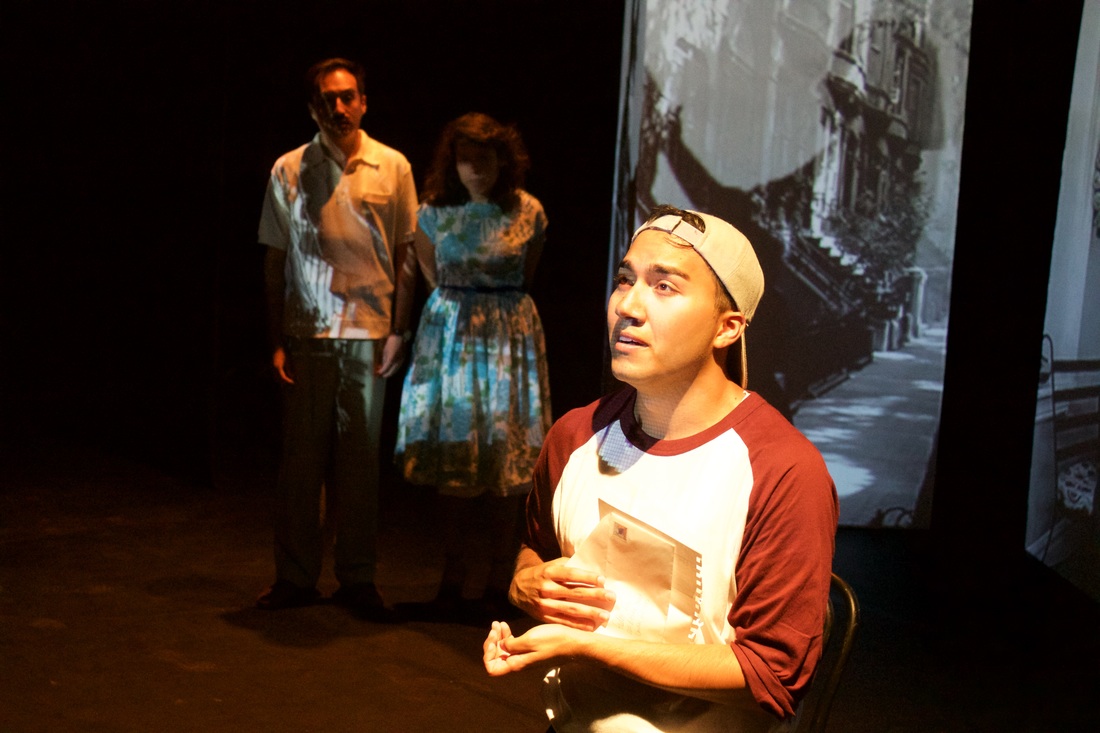When one thinks of Latinx narratives within the landscape of musical theatre, West Side Story, Evita, and In the Heights might come to mind. Perhaps Kiss of the Spider Woman, The Capeman, and Diana Morales in A Chorus Line do, as well. And, more or less, the buck stops here. Although the canon of mainstream musical theatre is rich and expansive, it noticeably excludes the United States’ quickly-expanding Latinx population. In the wake of Hamilton, Lin-Manuel Miranda and Quiara Alegría Hudes’ 2008 hit musical In the Heights has benefited from a resurgence that has seen the musical about the Washington Heights familia receive productions all across the country and a lucrative film deal with Warner Bros. Pictures. Yet, as great as In the Heights is, it doesn’t have to be the only musical that comes to mind when one thinks of Latinx representation, not to mention musicals about Latinidad written by Latinx artists.
Enter Pedro Pan, a new musical bringing the Cuban-American experience to the stage. The musical will be featured at the New York Musical Festival (NYMF) from July 10-14, 2018. After the musical won the 2017 NYMF Developmental Reading Series Award, Pedro Pan was automatically accepted into the NYMF’s Next Link Project. Pedro Pan was commissioned and produced by The TRUF Theatre Company, opening in Long Island City at The Chain Theatre in February 2014. The show has since gone through multiple phases of development under the leadership of Rebecca Aparicio before arriving this summer at NYMF (donate here). Pedro Pan features a book by Aparicio and music and lyrics by Stephen Anthony Elkins, her husband.
Pedro Pan dramatizes the historic Operación Pedro Pan, an event in which young Cuban children escaped the island amid the growing perils of post-revolutionary Cuba from December 1960 to October 1962. Over 14,000 Cuban children arrived in the United States to begin a new life. This event was the largest recorded exodus of unaccompanied minors in the Western Hemisphere. This is precisely where Pedro Pan finds its plot. The musical examines the ways in which the protagonist, aptly named Pedro, must discover ways to survive while learning a new language and a new culture. All the while, he longs to be reunited with his parents who remain in Cuba. The musical’s score features a range of styles from percussive rhythms of Havana to soul typical of 1960’s New York. Ultimately, the musical sheds light on what it means to be a displaced immigrant in the United States.
Rebecca Aparicio has been working on Pedro Pan since 2013. Since then, Aparicio has noted that it has become increasingly more difficult to be Latinx in the United States. Noticeably, the sociopolitical climate of the country has changed dramatically in the past five years. Even though the Obama Administration notoriously had a high number of deportations, the lived realities for both the Latinx and immigrant populations in the United States have quickly deteriorated under the Trump Regime, recently punctuated by the crisis at the border which has seen children separated from their parents, go missing, and/or put in detention centers with inhumane conditions. Aparicio explains:
It’s a very tough thing to navigate as a writer because when I wrote this story about a young boy experiencing life as an immigrant in America—it wasn’t in the context that it is now. I am reading my script now thinking about these children being held at detention centers and weeping. My parents were able to leave their home in search for freedom with one of their parents by their side and the trauma of that experience is something that has lingered for the rest of their lives. To leave a home never knowing if you will return, if you will ever see your family again, facing a brand new world, and a new language must be profoundly terrifying. To also be torn from your parent must be horrifying. Regardless of politics, the thought of a child having to experience that level of trauma is unfathomable.
As with most socially engaged theatre-making, it is impossible to separate what happens on stage from what is happening outside of the theatre. The reality is that current events and what is happening to immigrant children in the US will greatly impact how audiences experience Pedro Pan. Even though the musical tells a story set in the 1960’s, its themes couldn’t be more pertinent to today. Aparicio adds, “I can’t imagine a more powerful time for someone to walk into our musical and see life as an immigrant through the eyes of a child.”

Bobby Gámez, Rebecca Aparicio, and Luis Eduardo Mora in “Pedro Pan.” Photo by Stephen A. Elkins.
For actor Luis Eduardo Mora, who has been with the project since late 2013, this musical is close to home: “Everything that Pedro goes through I went through; with the exception of the privilege I had of coming with my parents,” adding “My family and I migrated to Miami, where the Operations Pedro Pan is more commonly known and discussed. My experience is that most people don’t know this part of our history and that is concerning to me. I feel that the lack of talking about this subject is part of the perpetual erasure of Latinx narratives.”
With this in mind, it should be no surprise that Pedro Pan speaks to the power of representation. Latinx experiences can and should be dramatized and added to the canon of musical theatre. These are stories that must be told and given attention to by audiences and critics alike. Moreover, the show has been a way for Pedro Pans themselves to see their stories represented on stage and, ultimately, work through their own experiences. “The absolute best part of being a part of this musical has been getting to know and talk to several people who went through this experience,” affirms Luis Eduardo Mora, adding “Pedro Pans have shared their stories with the team, they have cried and laughed with us, those who have seen it have given us their blessing. Their time with us have shaped the show and have given it the enormous heart that has been so evident every step of the way.”
In the end, there is power in representation. The Latinx community, just like any other community, deserves to be represented in the realm of musical theatre. Even though the canon may still privilege the likes of Hello, Dolly!, Gypsy, and Into the Woods, there is no reason that shows such as Pedro Pan can’t be in the same conversation. While escapist musical theatre is certainly enjoyable, the cast and creative team of Pedro Pan have a story to tell. Now is the time to listen.
This post was written by the author in their personal capacity.The opinions expressed in this article are the author’s own and do not reflect the view of The Theatre Times, their staff or collaborators.
This post was written by Trevor Boffone.
The views expressed here belong to the author and do not necessarily reflect our views and opinions.


















